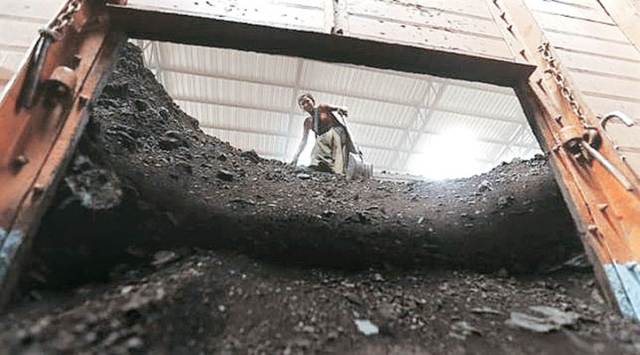Stay updated with the latest - Click here to follow us on Instagram
Jharkhand green energy task force holds first meeting, focusses on draft Terms of Reference
The task force was set up earlier this month in the context of India committing to achieve 500GW of non-fossil fuel target by 2030 and become a net-zero emitter by 2070.
 Jharkhand tops the list of coal reserves in the country and has 204 mining leases with 7853 legal dealers employing thousands of people in six districts.(Representational/File)
Jharkhand tops the list of coal reserves in the country and has 204 mining leases with 7853 legal dealers employing thousands of people in six districts.(Representational/File)The Jharkhand Task Force for Sustainable Just Transition met Monday to deliberate upon a draft Terms of Reference (TOR) and said a series of consultations with key stakeholders such as industries, business sectors, PSUs, and civil society organisations will be held.
Macro-level mapping of coal mining and its impact on the local economy, a pilot study of coal mining closure based on SOPs developed by the Coal Controller, mapping of earnings from other just transition initiatives taken by international governments, and developing a climate-free agricultural practice were also some of the key details that emerged from the first meeting of the task force.
The task force’s Chairman A K Rastogi told The Indian Express, “As of now we have prepared a draft TOR to set the agenda. Apart from various mappings, we will be doing a vulnerability assessment of coal mining districts and will delve into the socio-economic impact assessment of planned or unplanned closure of coal mines among others. The final TOR will be prepared by the end of January.”
The task force was set up earlier this month in the context of India committing to achieve 500GW of non-fossil fuel target by 2030 and become a net-zero emitter by 2070.
Jharkhand tops the list of coal reserves in the country and has 204 mining leases with 7853 legal dealers employing thousands of people in six districts. The state owns 40 per cent of the total mineral resources of India. According to the mines department, royalty revenue from coal accounts for more than 65 per cent of the total revenues across major and minor minerals. In FY 2020, the Jharkhand government collected Rs 3278.33 crore in royalty collection.







